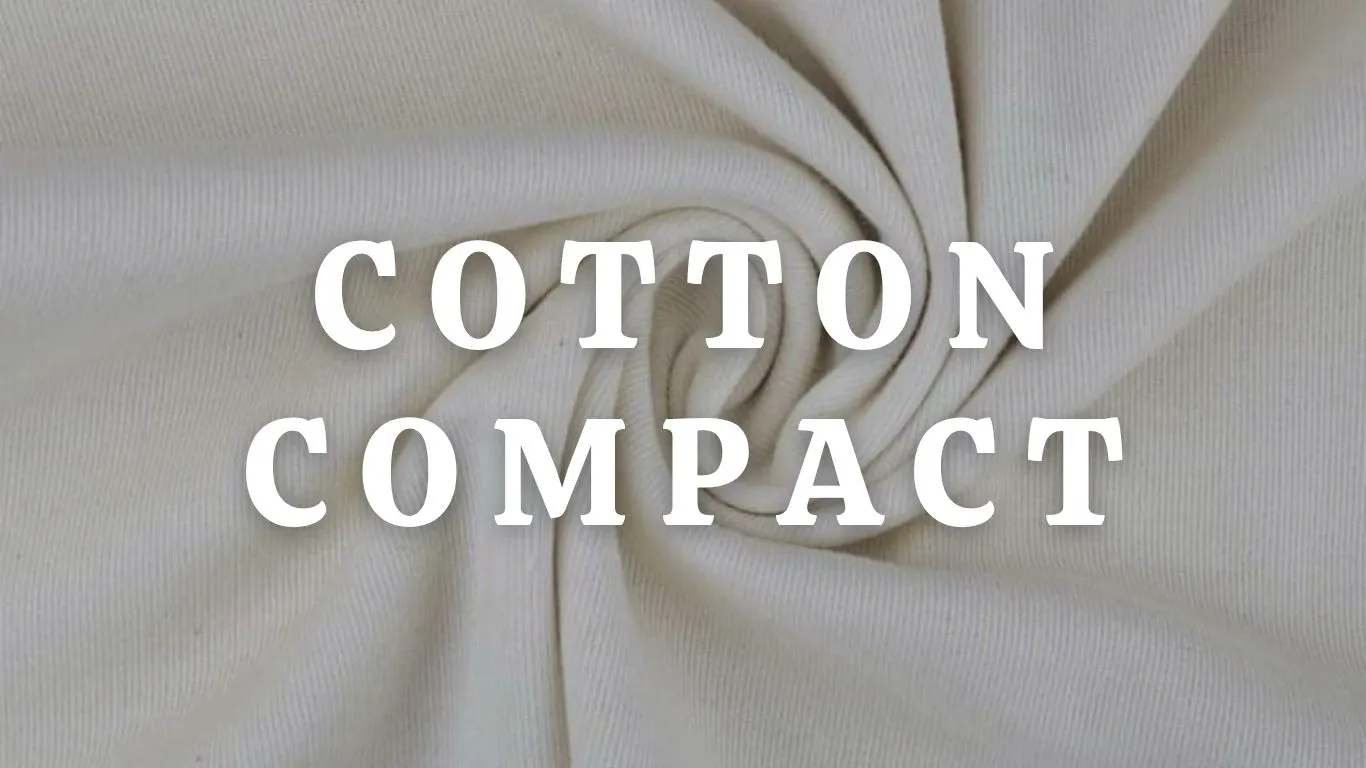
In the fashion and textile industry, cotton has long been admired for its softness, comfort, and breathability. Yet as the world moves toward higher-quality apparel, the need for more durable and polished fabrics has grown. Cotton Compact represents the next generation of cotton refined through advanced technology to improve texture, durability, and smoothness. Created using Compact Spinning Technology, this innovative fabric ensures fewer loose fibers and a silkier finish while maintaining cotton’s natural comfort. It’s the ideal choice for those seeking elegance, longevity, and premium performance in their textiles.
=> Related Article: 100% Cotton Fabric: Pure Cotton Yarn, Naturally Soft
What Is Cotton Compact?
Cotton Compact is not just another type of cotton; it’s a modern improvement on a centuries-old fabric. Produced through a process called Compact Spinning, the cotton fibers are compressed and aligned more tightly than in traditional methods. This process reduces loose ends, creating a smoother surface that resists pilling and maintains its shape longer. As a result, the fabric feels cleaner, softer, and more luxurious to the touch. In essence, Cotton Compact combines innovation and tradition to produce a superior textile that’s both elegant and durable.
=> Related Article: Cotton TC Fabric (35% Cotton, 65% Poly): Affordable, Easy to Manufacture

Cotton Compact is a premium version of cotton fabric made using Compact Spinning Technology. During the spinning process, the fibers are tightly compressed, which helps:
- Minimize loose fibers, giving the fabric a smooth, lint-free surface.
- Maintain the softness and breathability of natural cotton.
- Improve strength and shape retention compared to regular cotton.
Thanks to its advanced production, Cotton Compact fabric is also cleaner, generating less dust making it gentler and safer for everyday wear.
Advantages and Disadvantages
Every material has its strengths and weaknesses, and Cotton Compact is no exception. Its primary appeal lies in its softness, durability, and resistance to lint making it perfect for premium fashion and daily comfort alike. However, this elevated quality also comes with a slightly higher cost, which reflects the advanced technology used in its production. While it requires a bit of care to maintain its silky texture, its long-lasting nature makes it well worth the investment. Understanding these pros and cons helps consumers and manufacturers choose the right fabric for their needs.
=> Related Article: Cotton Compact: Upgraded Cotton for a Smoother, Stronger, and More Refined Feel
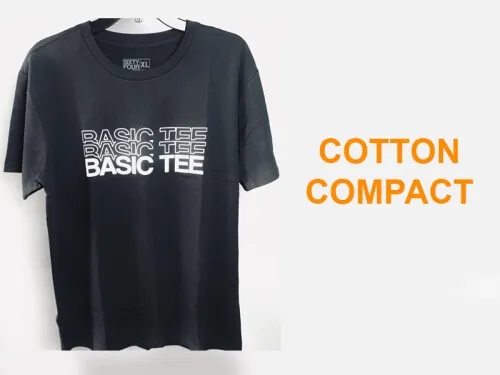
| Advantages | Disadvantages |
|---|---|
| Smooth, lint-resistant surface | Higher price than regular cotton |
| Excellent durability and shape retention | Limited availability in some markets |
| Soft and comfortable texture | Requires proper care to maintain smoothness |
| Low fiber shedding – skin-friendly | |
| Great moisture absorption and breathability |
Cotton vs. Cotton Compact
Although both fabrics come from natural cotton fibers, the difference between regular cotton and Cotton Compact lies in the details of their production. Traditional cotton spinning leaves small gaps and loose fibers, resulting in a rougher texture over time. Cotton Compact, on the other hand, uses precision engineering to compress and align each fiber, producing a denser, smoother weave that resists wear and tear. This gives it a more refined look and feel, often seen in high-end fashion lines and luxury apparel. For anyone seeking garments that stay sharp, soft, and elegant after many washes, Cotton Compact clearly stands apart.
=> Related Article: Cotton Silk: Gentle, Breathable, and Elegantly Smooth
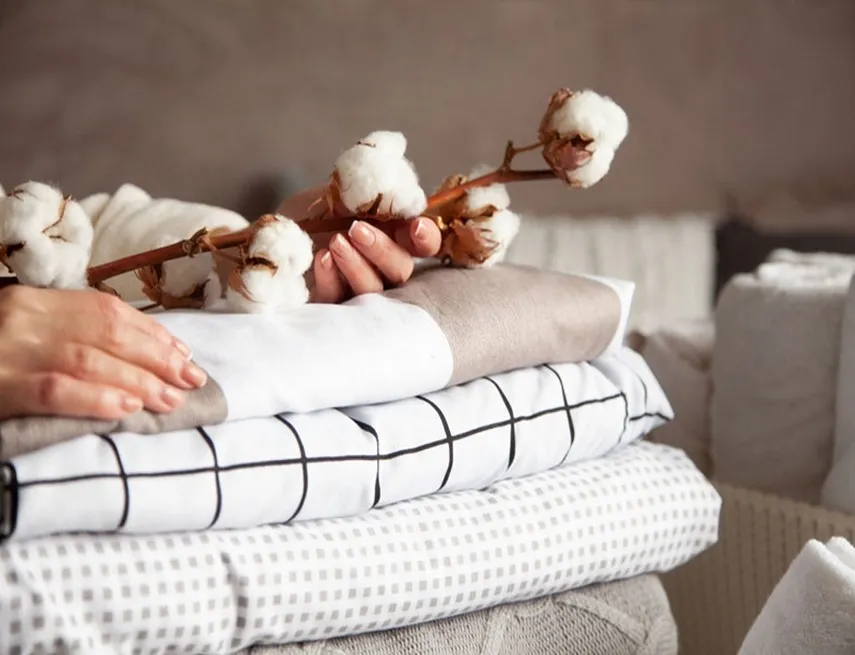
Both are natural cotton fabrics, but the main difference lies in the spinning technology:
- Regular Cotton: produced with traditional spinning, leaving more loose fibers and a rougher surface.
- Cotton Compact: made with fiber compression technology, resulting in a denser, smoother, and more durable fabric.
If you’re aiming for premium-quality garments such as shirts or high-end T-shirts, Cotton Compact is the superior choice.
Common Applications
The versatility of Cotton Compact makes it a top choice for a variety of high-quality garments and home textiles. Fashion designers value its smooth texture and durability for creating refined shirts, blouses, and T-shirts that hold their shape beautifully. In children’s wear, the fabric’s gentle touch and low lint levels make it safe and comfortable for sensitive skin. Beyond clothing, Cotton Compact is also ideal for bedding and household textiles, providing a clean, luxurious finish that enhances daily living. Its premium quality ensures comfort and style, whether worn or used at home.
=> Related Article: Cotton CVC: Cotton and Polyester – A Perfect Combination
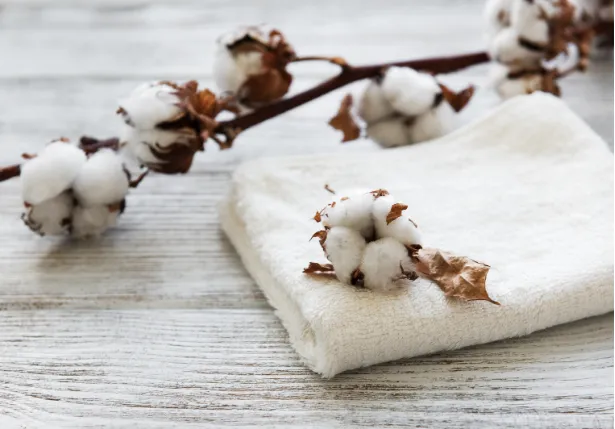
Cotton Compact fabric is widely used in high-quality textile products, including:
- Dress shirts – crisp and shape-retaining.
- Premium T-shirts – long-lasting and lint-free.
- Children’s clothing – soft and safe for sensitive skin.
- Bedding sets (sheets, pillowcases, duvets) – smooth and comfortable to the touch.
How to Care for Cotton Compact Fabric
Even the finest fabrics need proper care to maintain their quality, and Cotton Compact is no different. The good news is that it doesn’t require complicated maintenance just gentle handling and mindful washing. Wash the fabric in cool or lukewarm water, avoid harsh chemicals, and let it dry naturally away from direct sunlight. Ironing at a medium temperature while the fabric is slightly damp will help preserve its smoothness. With these simple habits, your Cotton Compact garments will stay soft, vibrant, and elegant for years.
=> Related Article: What is Cotton 60s? Its Advantages, Comparison with Cotton 40s and Real Life Applications
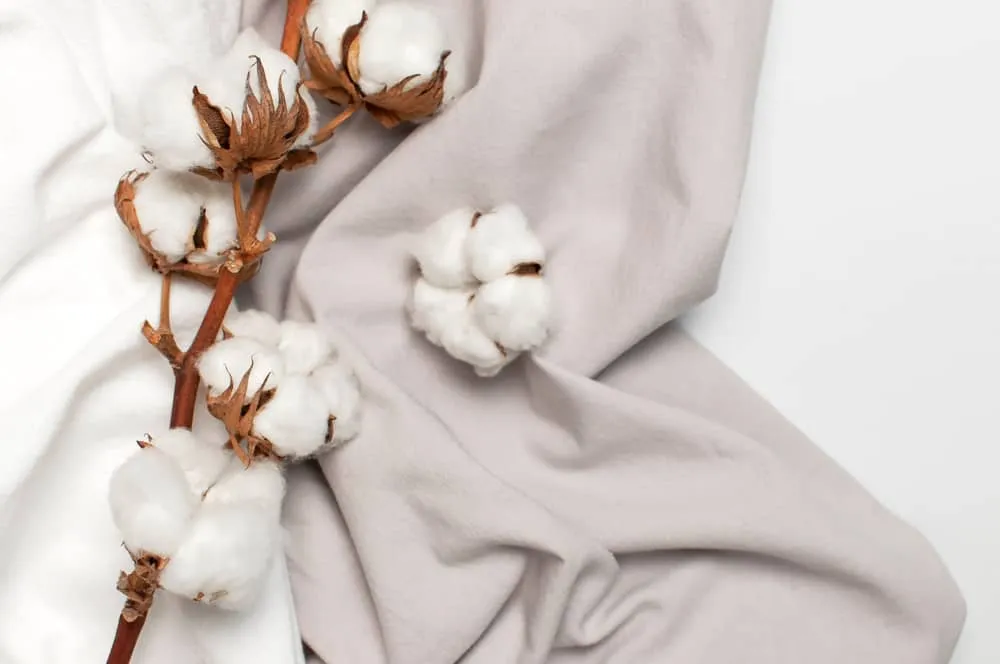
To keep your Cotton Compact fabric in its best condition:
- Wash below 40°C (104°F) on a gentle cycle.
- Avoid strong detergents or bleach; use mild liquid detergents instead.
- Air-dry in the shade to prevent color fading.
- Iron at medium heat while the fabric is slightly damp.
Conclusion / Final Word
Cotton Compact represents a true upgrade over traditional cotton. It delivers the softness and breathability of natural cotton, enhanced by superior strength, smooth texture, and refined appearance. For brands and consumers seeking higher-quality garments, Cotton Compact is the perfect fabric choice that combines comfort, beauty, and durability in every thread.





